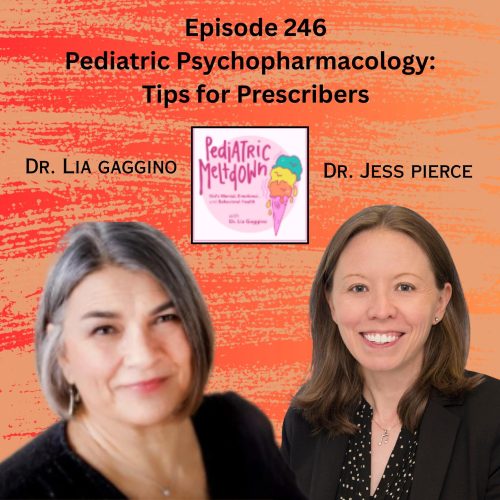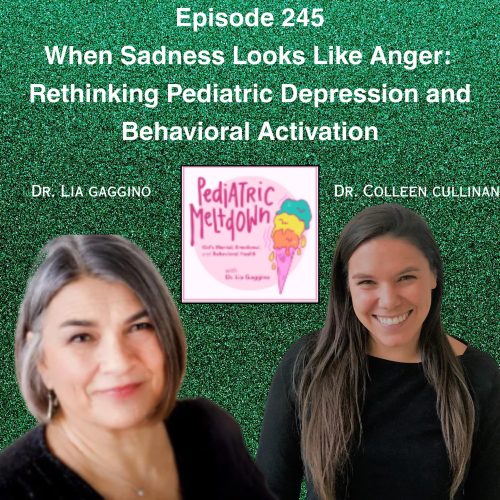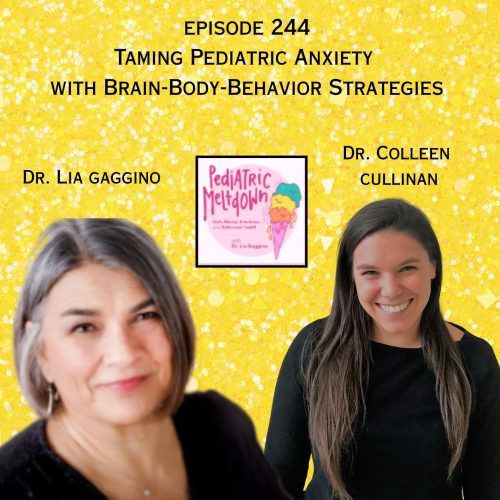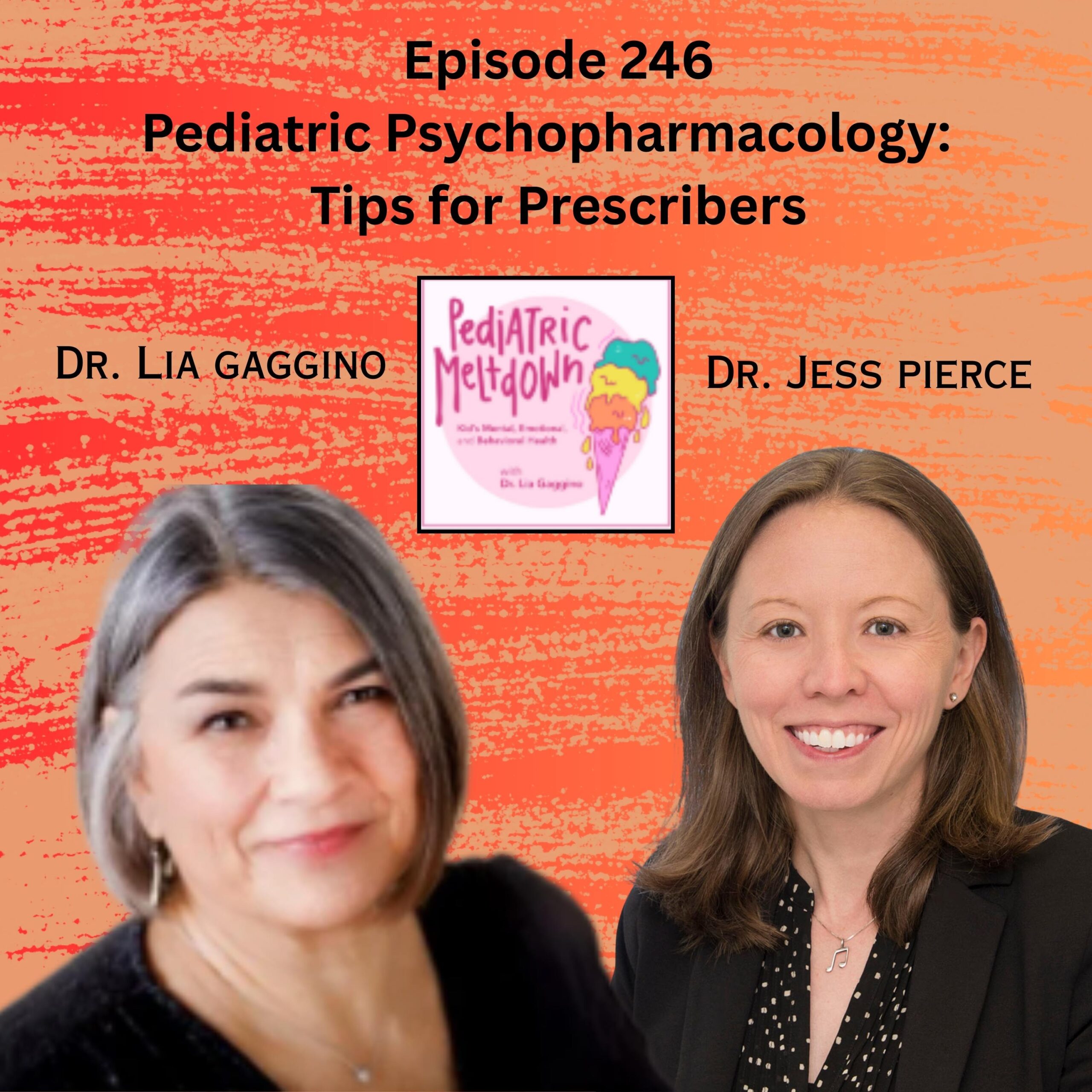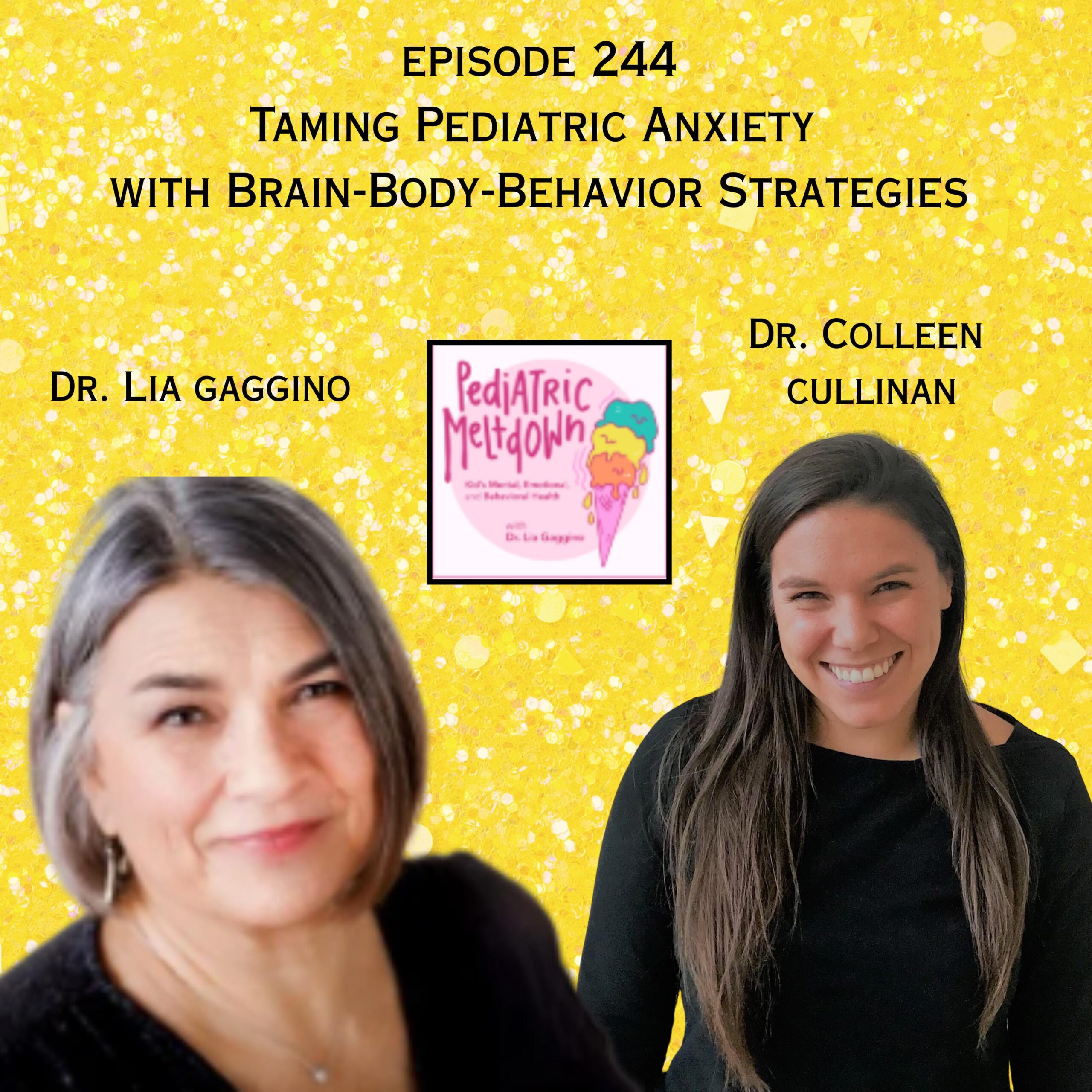Welcome to the Pediatric Meltdown podcast, where we delve into the challenges and triumphs of pediatric healthcare. Today, host Lia Gaggino has the pleasure of introducing her guest, (and self-proclaimed “superfan” of Pediatric Meltdown), Dr. Alisa Minkin, a trailblazing pediatrician and host of the JOWMA Podcast, a show dedicated to health education for the Orthodox Jewish community. In today’s episode, Dr. Minkin shares her inspiring journey as a pediatrician and her unwavering commitment to mental health awareness. Drawing from her experiences as a parent to a child with special needs, as well as her advocacy for mental health screenings, Dr. Minkin’s story is one of passion, resilience, and making a difference in the lives of children and families. Despite the barriers of time and limited resources, she has embraced telehealth as a double-edged sword and implemented crucial mental health screenings in her practice. Her desire to hear more voices of lived experiences, particularly from autistic and neurodivergent individuals and family partners, reminds us of the importance of inclusion and diverse perspectives in approaching pediatric care. Her journey serves as an inspiration for healthcare professionals and parents alike. With her passion and determination, she is indeed a true mental health warrior. So, grab your headphones and tune in to this episode – you don’t want to miss this thought-provoking episode.
The Spoons Theory: The spoon theory is a metaphor describing the amount of physical and/or mental energy that a person has available for daily activities and tasks, and how it can become limited. It was coined by writer and blogger Christine Miserandino in 2003 as a way to express how it felt to have lupus; explaining the viewpoint in a diner, she gave her friend a handful of spoons and described them as units of energy to be spent performing everyday actions, representing how chronic illness forced her to plan out days and actions in advance so as to not run out of energy.
The metaphor has since been used to describe a wide range of disabilities, mental health issues, forms of marginalization, and other factors that might place an extra and often unseen burden on people living with them. From Spoon theory – Wikipedia
[03:10 – 09:01] Barriers to meeting mental health needs
- Limited time for pediatricians to address mental health concerns during appointments.
- Lack of resources, especially for those who accept insurance or Medicaid.
- Challenges in finding qualified therapists and mental health resources.
- Disparities between Medicaid and private insurance coverage for mental health services.
[09:02 – 14:24] Training Programs and Resources
- Case reviews and phone calls as part of the Reach program
- Utilizing Project Teach, a child psychiatry access program
- Listening to podcasts, including the Joma and Pediatric Meltdown podcasts
- Learning from personal experiences and emotionally resonant stories
[14:25 – 22:34] Personal Reflections and Advocacy
- Highlighting the importance of suicide prevention and her sister’s experience with it.
- Discussing the journey of implementing suicide prevention screening in her practice and allied supergroup.
- Expressing gratitude for the support received from experts in the field.
- Describing the introduction of combined ASQ Gad and PHQ screening tools in her practice.
[22:35 – 32:47] The Importance of Advocacy and Creativity in Pediatrics
- Advocating for more resources in hospital systems
- Finding creative solutions to address funding limitations, such as partnering with universities for free assistance
- Providing access to specialized professionals, like doctoral students, for comprehensive care
- Encouraging collaboration and teamwork within healthcare systems to improve patient outcomes
[32:48 – 38:36] Closing segment Takeaway
You can reach Dr. Alisa Minkin
website: https://jowma.org
Instagram: @jowma_org
Facebook: https://www.facebook.com/JOWMAorg/
The JOWMA Podcast: JOWMA (Jewish Orthodox Women’s Medical Association) Podcast
Links to resources mentioned on the show
The Spoon Theory: https://en.wikipedia.org/wiki/Spoon_theory
REACH Instititue: https://thereachinstitute.org
Project TEACH (New York program): https://projectteachny.org
Child Psychiatry Access Programs: www.Nncpap.org
Other episodes you may like:
Ep. 01 Words Matter- Talking about Weight and BMI
Ep. 124 Obesity in Children and Adolescents: Changing the Narrative
Ep. 103 Talking to Teens and Parents: A Re-Frame with Dr. Ken Ginsburg
Key quotes for Twitter:
“I don’t think we learn so much from information as we do from emotionally resonant stories.”… Dr. Alisa Minkin on The Power of Personal Stories
“…And that’s how the whole thing started. We were trying to get information out there to that population.” Dr. Alisa Minkin on Podcasting for the Orthodox Jewish Community:
THANK YOU FOR YOUR SUPPORT!
Pediatric Meltdown was listed as a Top 20 Pediatric Podcast on FeedSpot.
If you’d like to connect with me, you can Tap the “What Are Your Thoughts” button at the top of the notes or you can find me on LinkedIn, Facebook, Instagram, and Twitter, or email me at [email protected] or [email protected]. To learn more about me visit https://www.medicalbhs.com/
LOVE WHAT YOU HEARD? Leave us a 5-star review so we can continue to provide you with great content. Share this episode and help people know more about children’s health and well-being.



